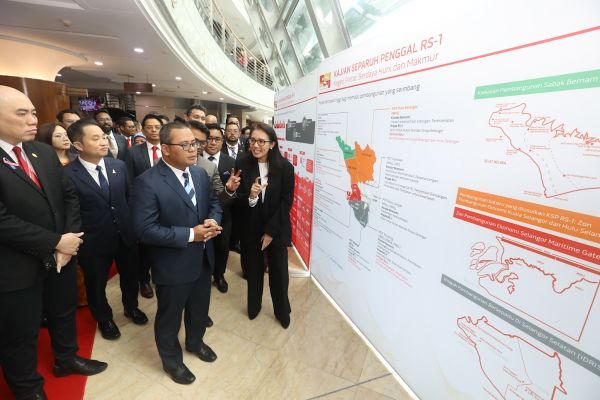By Danial Dzulkifly
SHAH ALAM, July 4 — Thirteen of the 20 “game-changing” projects identified in the First Selangor Plan (RS-1) are already in the implementation stage, marking significant progress in the state’s ambitious development agenda.
This was revealed by Menteri Besar Dato’ Seri Amirudin Shari during the tabling of the RS-1 mid-term review in the State Legislative Assembly today.
The high-impact projects include the three regional development plans in Selangor, namely the Sabak Bernam Development Area, the Integrated Development Region in South Selangor, and the Selangor Maritime Gateway Economic Development Zone.
Infrastructure development was also prominent among these projects, including the Rasau Water Supply Scheme, the Integrated Solid Waste Management Centre with its waste-to-energy treatment plant, the Selangor Government Data Exchange, and the Pulau Indah Power Plant.
Other prominent initiatives included the Shah Alam Sports Complex development project and the Iltizam Selangor Penyayang initiative.
“This achievement aligns with projections for long-term, large-scale development projects, with all phases of development scheduled through 2025,” he said.
Meanwhile, two of the 20 game-changers — the Selangor Aero Park and the development of a greenhouse gas inventory system — are currently in the design and planning stages.
The five remaining projects are in the concept and initial stages.
They are the third port on Pulau Carey, the Shah Alam Contemporary and Modern Art Gallery, the Selangor Senior Citizens Employment Programme, the Centralised Risk Management Committee, and the State Intelligence Analytics Unit.
The Menteri Besar said these high-impact projects are part of a broader initiative involving 262 projects structured around the four strategic themes under RS-1.
He added that following the plan’s Mid-Term Review, the number of projects, programmes and initiatives (PPI) has now increased to 282.
The increase in PPIs is due to the state’s decision to align its plans and policies with the Federal government, including the Madani Economy framework, the New Industrial Master Plan 2030, and the Energy Transition Roadmap.
Of the 282 PPIs, Amirudin said 93 initiatives are focused on the economy, 98 on social issues, 39 on sustainability, and 52 on governance.
As of last year, 18 per cent of these initiatives (52 PPIs) have been completed, while the remaining 82 per cent (230 PPIs) are ongoing and expected to continue until or beyond 2025.




